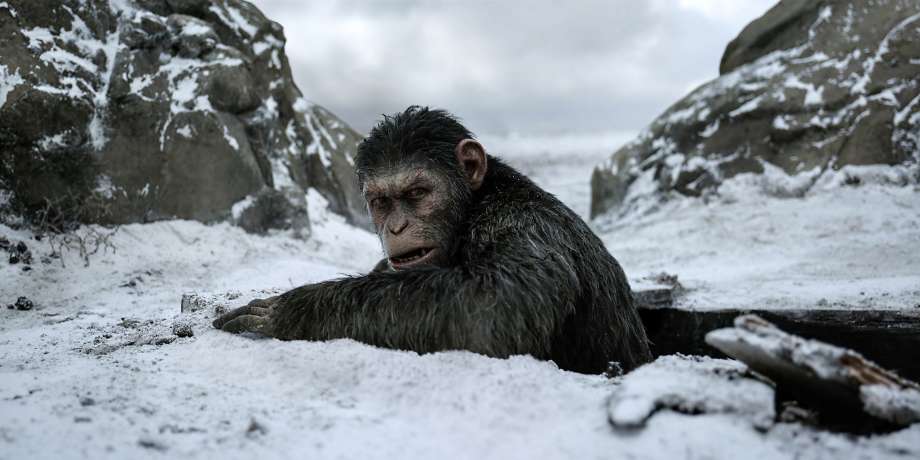‘War for the Planet of the Apes’ is intelligent, somber
The Planet of the Apes has come a long way since Charlton Heston rode bareback on a beach. Ever changing motion-capture technology has made the simians even more realistic. Renowned performance-capture actor Andy Serkis returns as the film’s protagonist, Caesar. “In terms of the software and the understanding of how the actor’s performance is authored and the interpolation of that performance and how that’s brought to the ape’s face, that has changed, on the back end. So the rendering, the skin texturing and so on and so forth,” said Serkis who knows his way around the technology, having starred in the “Lord of the Rings” trilogy as Golem, and more recently as Supreme Leader Snoke in “Star Wars: The Force Awakens.” Meet Bad Ape in the new clip from #WarForThePlanet. In theaters in 1 month. pic.twitter.com/xBgtQ93GOU— WarForThePlanet (@ApesMovies) June 14, 2017 Director Matt Reeves said that using the technology is “a lot easier that you would imagine.” “The actors are there,” he said. “The complex part of it is, once you shoot actors in their mo-cap suits, getting everything else you need in order to make those shots come to life, that part is really really hard. But the shooting of it, in terms of the actors is a lot more straightforward than you would think.” War of the Planet of the Apes concludes the critically-acclaimed rebooted trilogy. It sees the chimpanzees and monkeys go into a deadly conflict with an army of humans for the future of their species and the future of the planet. WAR FOR THE PLANET OF THE APES is masterful summer “blockbuster” filmmaking. Kinda can’t believe this movie exists. https://t.co/1KYsMu7xvO— Mike Ryan (@mikeryan) June 26, 2017
Media: Euronews Culture
It is a terrible thing when a species realizes that evolution is not on its side. It’s a downright weird thing when a species starts making movies celebrating that possibility. The “X-Men” movies and even to an extent the recent deluge of superhero pictures all deal, to some degree, with the coming obsolescence or helplessness of normal human beings, the implicit idea being that all just should accept this fact and walk in neat, undisturbed lines into the abyss.
But no series has been so obvious in its viewpoint as the new “Planet of the Apes” series, a three-movie prequel to the original “Planet of the Apes” (1968), which ended with Charlton Heston screaming on the beach about mankind’s self-destruction. In the new series’ first two films, audiences were asked to root on this inevitability, which was difficult. But in the new film, “War for the Planet of the Apes” — the best of the series, by far — the series’ viewpoint comes into focus, and it’s a lot more intricate and enlightened…

Comments